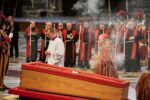What Every Golf Fan Should Know

The Masters Tournament stands as one of golf’s most celebrated events, attracting both lifelong fans and newcomers interested in betting. For those new to golf wagering, the wide range of bet types, the tournament’s unique structure, and the way odds work can feel overwhelming. Learning the basics—such as how to pick an outright winner, understand head-to-head matchups, or interpret betting odds—can make the experience much more enjoyable and informed, especially during such a high-profile event. In this article we’ll explore your betting options for the Masters – and help you make the most of the excitement Augusta brings each April.
Understanding the Tournament Format and Its Betting Implications
The Masters is a four-day, 72-hole stroke play tournament held annually at Augusta National. It features a limited field of top-ranked players, past champions, and select invitees. Because the field is smaller than in other majors, betting markets are tighter, and value plays can be harder to find.
The tournament follows a standard structure: two rounds on Thursday and Friday, followed by a cut. Only the top 50 players (including ties) advance to the weekend. This format affects outright bets, matchup bets, and cut-line wagers. When placing wagers, bettors should remember that early performance doesn’t guarantee success across four days. Weather, pin placements, and course conditions evolve, impacting scoring trends and player behavior. Familiarizing yourself with the cut rule is essential, especially when betting on players to “make the cut” or “miss the cut.”
Outright Winner Bets and Why Timing Matters
The most popular Masters bet is on who will win the green jacket. Oddsmakers assign each golfer a moneyline price based on performance history, world ranking, course fit, and current form. Favorites like past champions often carry low payouts, while emerging talents offer higher returns but more risk.
Placing outright bets early, even weeks before the event, can lock in better odds. However, this carries the risk of players withdrawing or showing poor lead-in form. Waiting until after the first round provides insight into who is in sync with Augusta but reduces potential value. Some bettors hedge by placing early bets on long shots, then adjusting after Thursday based on leaderboard shifts. Regardless of timing, studying past Masters performances is key. Remember, the Augusta National rewards experience—first-timers rarely win.
Exploring Top Finishes and Group Betting Options
If outright betting feels too volatile, consider wagers on finishing positions. Betting on a player to finish in the top 5, 10, or 20 reduces the variance while still offering attractive odds. These bets provide room for error. A golfer can play consistently without winning and still deliver a payout.
Group betting is another popular option, especially for beginners. Sportsbooks often group players into sets of three or four and allow bets on who will finish highest within the group. This type of bet eliminates the need to predict the full tournament outcome, narrowing the focus to smaller competitions. Group markets often carry lower ‘juice’ (the commission or fee that a sportsbook charges for taking your bet) than outright wagers and allow for more controlled risk assessments. Handicapping these bets usually involves comparing recent form, course history, and how players handle pressure in major events.
Understanding Odds Formats and Payouts
Most U.S. sportsbooks display odds in American format (e.g., +1200 or -150). A +1200 line means a $100 bet yields $1,200 profit. A -150 line indicates you must wager $150 to win $100. Some platforms also allow switching to decimal or fractional odds, but knowing how to read American odds is crucial for understanding implied probability.
For example, if a player is +800 to win the Masters, the implied probability is roughly 11.1%. That reflects what oddsmakers believe are the chances of victory, but not necessarily their true likelihood. Comparing those odds to expert projections or your own research can reveal whether a bet offers value.
Bettors should also check if the sportsbook applies dead-heat rules or ties for position markets, which can affect payout if players share a place.
Live Betting and Round-Specific Markets
The Masters provides an ideal environment for live betting. Golf’s slow pace allows time to analyze trends, player form, and changing course conditions. Live odds update after each shot or hole, and some sportsbooks offer hole-by-hole or three-ball bets during each round.
Key Factors to Consider Before You Wager
Success in Masters betting requires more than scanning leaderboards. Course history plays a significant role. Augusta National is a unique test of precision, shot-shaping, and mental toughness. Players with prior top-10 finishes often repeat strong performances, while newcomers face a steep learning curve.
Pay attention to player pairings and tee times as well. Morning rounds often play easier than afternoons due to course conditions. Some bettors use these details to find mismatches in same-round matchups or prop bets.
Lastly, bankroll management is critical. Golf betting can be volatile. Spread your bets across different types—outrights, placements, matchups—to reduce risk and extend engagement throughout the four-day event.
What to Keep in Mind as the Masters Approaches
Betting on the Masters isn’t about chasing long shots or placing bets on impulse. It’s a thoughtful process that blends tradition with sharp analysis. Understand the tournament’s rhythm, study the odds carefully, and align your bets with data (but don’t ignore intuition). The more you know about the course and the players, the more each swing becomes an opportunity—not just a moment of suspense.





